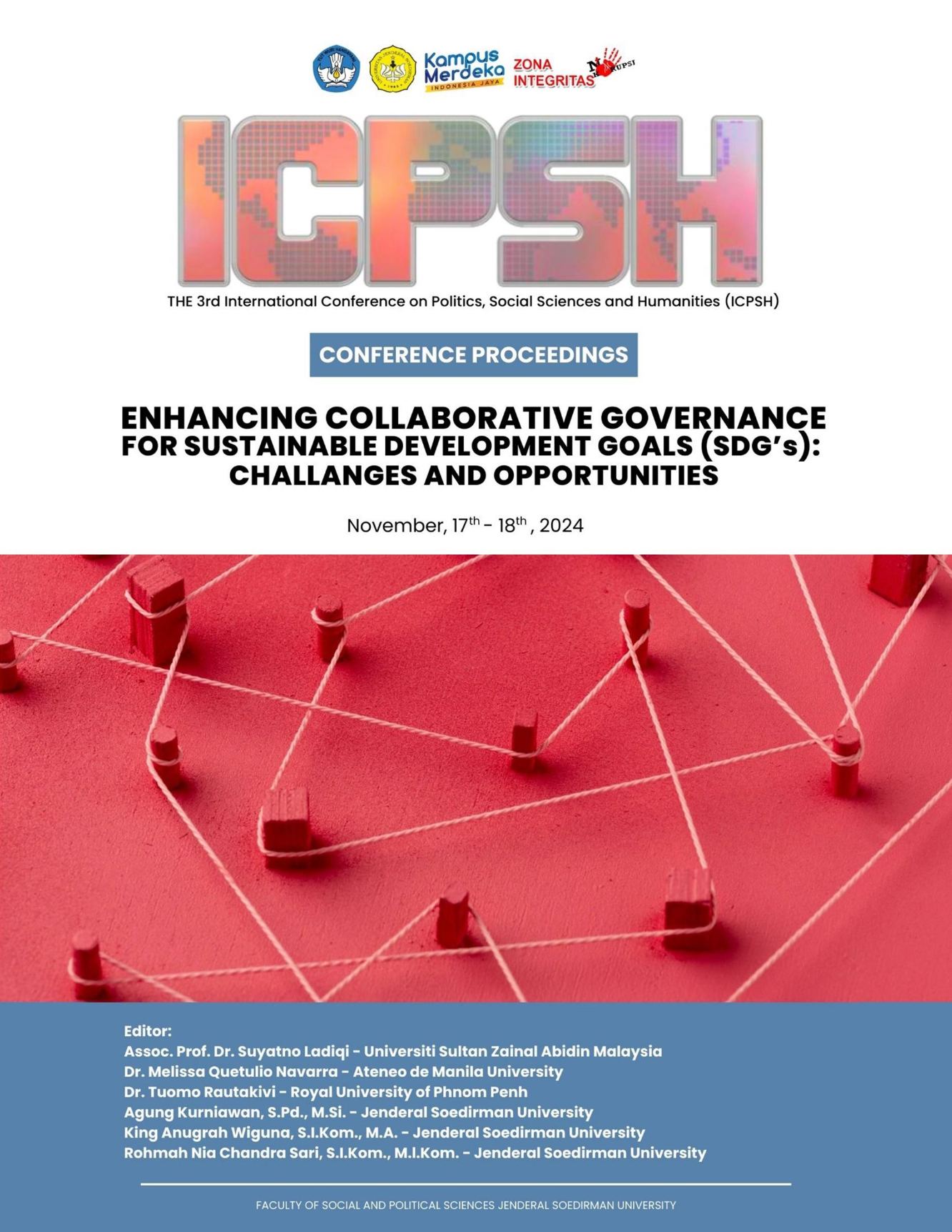Analysis on the Diffusion Mechanism of Electrification of the Transjakarta Bus Policy in Jakarta
Abstract
This research aims to analyze the roles of international actors, state actors, and non-state/private actors in the diffusion of electric bus policies within the context of public-private collaboration. The selected case is the electrification of the Transjakarta Bus units. The urgent need to address climate change is driving the transition towards environmentally friendly transportation systems, particularly in urban centers like Jakarta. One significant source of air pollution stems from vehicles that rely on fossil fuels. To tackle this challenge, the DKI Jakarta Provincial Government has mandated Transjakarta, the city's bus rapid transit system, to lead the shift towards battery-powered electric vehicles as part of its public transportation fleet, in accordance with Governor's Decree Number 1053 of 2022. Using a qualitative descriptive case study approach, supported by interviews and literature review, the study applies the framework of international diffusion mechanisms to understand how these actors contribute to the electrification of Transjakarta. The findings suggest that international, national, and private actors play different roles in promoting and facilitating the policy diffusion process of electrification policy, each contributing through a combination of expertise, funding, and technological innovation. This collaboration is seen as essential for achieving sustainable development goals in Jakarta's public transportation sector.



